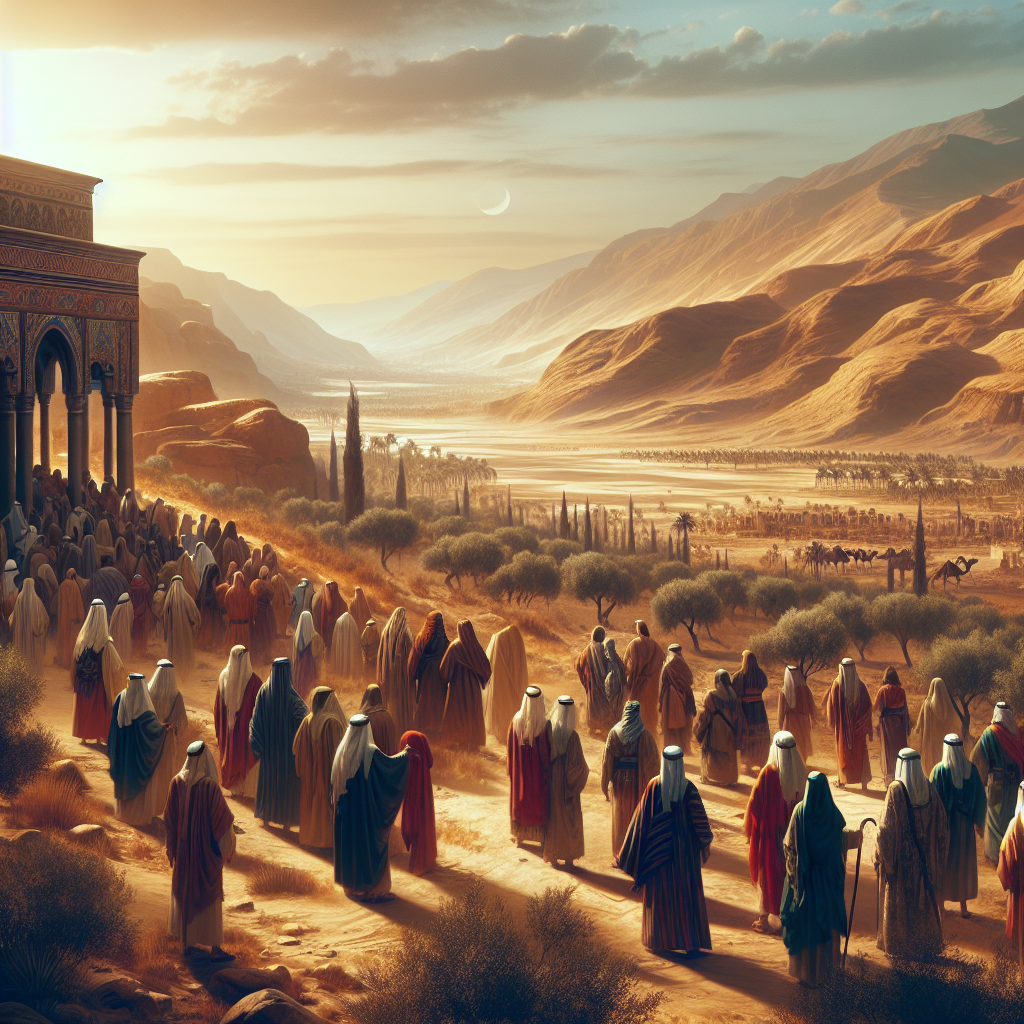The Last Days of Pompeii: Drawing Biblical Parallels for Today’s World
Introduction
Imagine a thriving city at the height of its glory, where the bustling marketplace hums with life and grand villas stand as testaments to human creativity. This was Pompeii before its tragic end. Edward Bulwer Lytton’s epic narrative, "The Last Days of Pompeii," captures this vibrance, filled with compelling characters and moral dilemmas we still face today. Interestingly, the story also finds resonance in biblical principles that guide us in our spiritual journeys.
What if we use the cautionary tale of Pompeii to reflect on our own lives and biblical teachings? Let’s explore this together, drawing wisdom from both history and the Bible.
Pompeii’s Extravagance and Biblical Warnings
Much like Pompeii’s citizens, we often find ourselves engrossed in the pursuit of wealth, pleasure, and social status. In the Bible, we repeatedly encounter warnings against these very temptations.
-
Vanity of Pursuits (Ecclesiastes 1:2): “Vanity of vanities,” says the Preacher, “vanity of vanities! All is vanity.”
Kozmodes, the wealthy and powerful in Pompeii, live lives filled with excess. This mirrors King Solomon’s lament about the fleeting nature of material pursuits.
Reflection Question: Have you ever felt empty despite achieving your material goals? What biblical principle could help refocus your priorities?
-
Warning Against Idolatry (Exodus 20:3): “You shall have no other gods before me.”
In Pompeii, multiple deities were worshipped, reflecting today’s modern “idols” such as technology, fame, or money. The Bible consistently cautions us that these distractions can lead to our downfall, much like they did for Pompeii.
Reflection Question: What are modern-day “idols” that could be diverting your attention from spiritual growth?
Signs from Above: Divine Warnings in Pompeii and the Bible
Bulwer Lytton describes ominous signs leading up to Pompeii’s disaster—natural phenomena ignored by the people. The Bible, too, speaks of divine warnings.
-
Signs of the Times (Matthew 24:7-8): “For nation will rise against nation, and kingdom against kingdom, and there will be famines and earthquakes in various places. All these are but the beginning of the birth pains.”
People in Pompeii were oblivious to the warnings much like people in biblical stories and perhaps, us today. Ignoring these signs can lead to spiritual and sometimes literal destruction.
Reflection Question: Have there been moments in your life where you ignored clear warnings? How could these be viewed as divine signs?
Redeeming Love: Realizing God’s Grace
Amidst the chaos and moral decay in Pompeii, Bulwer Lytton depicts moments of genuine love and sacrifice, mirroring similar acts of redemption found in the Bible.
-
Love One Another (John 13:34-35): “A new commandment I give to you, that you love one another: just as I have loved you, you also are to love one another. By this all people will know that you are my disciples, if you have love for one another.”
The selfless acts of Glaucus and Nydia remind us of Christ’s teachings. Their stories serve as parallels of how love can manifest God’s grace even in the darkest times.
Reflection Question: How can you show Christ-like love in difficult situations? Are there ways you’ve witnessed or experienced redeeming love recently?
Living with Purpose: Embracing Biblical Teachings
Lastly, the tragic end of Pompeii reminds us of the importance of living a life rooted in faith and purpose.
-
Living for God’s Will (1 Peter 4:2): “As a result, they do not live the rest of their earthly lives for evil human desires, but rather for the will of God.”
Instead of chasing fleeting pleasures, we’re called to live according to God’s purpose. The story of Pompeii serves as a reminder to seek a meaningful life grounded in spiritual values.
Reflection Question: What steps can you take to align your daily actions with God’s will?
Conclusion and Call to Action
The Last Days of Pompeii showcases human flaws, divine warnings, and the potential for redemption, paralleling many biblical principles. It serves as a vibrant reminder to prioritize our spiritual journey and heed divine guidance.
Take a moment to reflect on the lessons from Pompeii and biblical teachings:
-
Identify areas in your life where you might be chasing “vanity of vanities.”
-
Recognize any modern-day idols and recalibrate your focus toward God.
-
Pay attention to divine warnings and embrace them as part of your spiritual growth.
-
Practice love and sacrifice, emulating Christ’s example.
Share your thoughts or personal stories about how these lessons impact you. Let’s foster a community where we learn and grow together, inspired by history and guided by faith.
Don’t forget to leave your reflections and experiences in the comments below. How do you see God’s teachings unfolding in your life? Your insights could be the encouragement someone needs today.
Until next time, may we live each day with purpose, guided by God’s eternal wisdom.
If you found value in this devotional, please share it with others who might benefit. Make sure to subscribe to our newsletter for more faith-filled reflections and interactive discussions. God bless!
If you want to learn how ANY book relates to Biblical principles, please try our Books and Scripture GPT. Simply type in the name of a book and let it show you insights you might not have been aware of!


